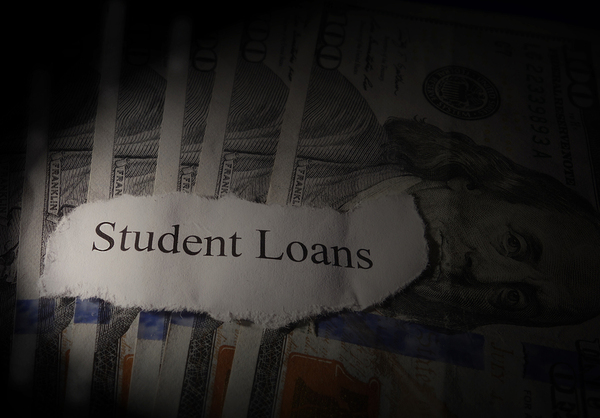View Sale Announcement Detail


Archived news
 News stories about rising student loan debt may be emphasizing the negative.
News stories about rising student loan debt may be emphasizing the negative.
In fact, student loan debt as part of the overall loans outstanding of people in this age group has risen dramatically as well. In 2005, just under 13% of the total loans of people aged 20 to 29 was made up of student loans. In 2014, student loans made up nearly 37% of the total, a whopping 186% increase.
The rise in student loan debt can exert an effect on the economy. Large debt totals of any kind can become a drag. But it’s arguable that news stories about spiraling student debt, in places from Bloomberg to Business Insider to Time, are actually skewing the economic picture.
Increasing Enrollment + Rising Educational Costs = Climbing Student Debt…
The rise in student debt over the last decade and a half is simple to explain. It’s been driven by increased enrollment climbing educational costs. Currently, costs for one year of an undergraduate college education at a private school top $42,400. But, more than 30% of these costs are paid for not from savings or parental salaries, but from grants and scholarships.
The economic effects have proved not so simple to explain. News stories tend to focus on the economic costs that student debt repayment incur on borrowers.
Rising student debt, of course, means that more students have student loan repayments post-college. The disposable income they expend toward debt repayment, the argument goes, means they have a smaller pie of disposable income to put toward other purchases, such as saving for a down payment for a house or purchasing a car.
As a result, many news stories tend to focus on student loan repayment as a culprit in young people not buying homes (because they can’t afford the down payment or high monthly mortgage payments), not purchasing cars (ditto down payment and monthly payment difficulties), and even putting off starting families, because of the expenses involved in raising children.
 Young student loan borrowers are as able to get loans and repay them as their peers without student loans.
Young student loan borrowers are as able to get loans and repay them as their peers without student loans.
News About the Economic Impact Might Be Overblown
But in reality, student loan debt may not have that impact, either for the economy as a whole or for the student borrowers as an aggregate.
As Forbes points out, student loan debt is not lost to the economy. Once it’s incurred, students spend, using the money for tuition, housing, books and supplies, and food. It is money pumped into the economy paying professors, administrators and a host of other workers at colleges and universities. And once payment is due, the lender is returned money that was foregone during the period when the money was being spent. So the money is placed in the lender’s column.
Now, as Forbes admits, it is possible that individual student borrowers may have the difficulties in disposable income saving and spending that the news stories allude to, but these are individual impacts, not collective ones.
There is also increasing evidence that the impact on young people might not be as negative as sometimes portrayed. The Transunion study showed that consumers in the 18- to 29-year-old age group seem to have the same ability both to obtain mortgages, auto loans, and credit cards and to repay them as people in the same age group who don’t have student loans.
Not only that, the participation rate on mortgages, car loans, and credit cards was actually higher 3 to 6 years out for young people with student loans versus people without them.
So student loans may be having an impact on the economy. But it is not necessarily what you read in the news headlines.
Student Loans, Lenders, and Loan Sale Advisors
The net result of news of rising student loan balances and the rising number of students carrying them is clear. Lenders should be aware that borrowers with student loans can be good borrowers.
The key for prudent lenders is to monitor their portfolios. Garnet Capital can provide real-time market feedback and feasibility studies. Do you want to augment your student loan portfolio? Sell it? Garnet can help on student loan and multiple other portfolio types. Register for our online portfolio auction system.

